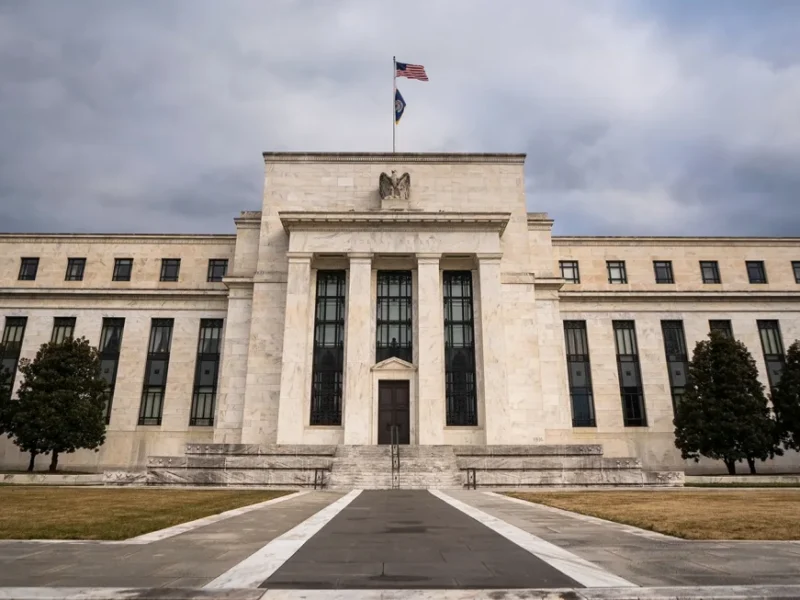Stocks have experienced a smooth rise in 2024, with the S&P 500 gaining nearly 15% and showing a steady upward trend for the past two months.
Treasuries have been more volatile, influenced by fluctuations in inflation data, hints from Federal Reserve officials about future policy decisions, and expectations of prolonged higher interest rates. After a spike in yields in April and May, they’ve stabilized and are expected to end the first half nearly even. However, the relatively calm market might face challenges ahead. The Fed is signaling that there might not be any rate cuts this year, coupled with the uncertainty surrounding the US election, which could lead to a rougher second half.
Fed influences: Treasury yields, which rise as prices fall, increased this week as investors responded to Fed officials downplaying the likelihood of interest rate cuts.
On Tuesday, Fed governor Michelle Bowman stated that she expects no rate cuts this year. San Francisco Fed President Mary Daly mentioned on Monday that the Fed needs to stay flexible and keep rates higher for longer if inflation declines more slowly than expected.
Similarly, Chicago Fed President Austan Goolsbee expressed a hawkish stance, saying he needs to see “more months” of weaker inflation data before considering rate cuts.
Recent data has also unsettled investors. Central banks in Canada and the eurozone cut interest rates, but inflation rose in both regions last month. Australia saw its inflation rate rise to 4% this week, raising concerns that the Reserve Bank of Australia might increase rates again.
Debt, deficits, and debates: The uncertainties of the current election cycle have also unsettled investors, particularly since neither President Joe Biden nor former President Donald Trump has indicated plans to address the growing budget deficit.
“With rates back on the rise due to international price pressure concerns, it’s crucial to consider whether government debt, deficits, and issuance will become significant again,” said José Torres, senior economist at Interactive Brokers.
As debt increases, investors often demand higher returns to buy long-term Treasuries.
This could impact markets. The last 10% correction in stocks occurred when the 10-year Treasury yield reached 5% in October, Torres noted.
Earlier this week, 16 Nobel Prize-winning economists warned in an open letter that a second Trump administration would worsen inflation.
The letter, organized by economist Joseph Stiglitz, argued that Trump’s agenda would “reignite” inflation due to “fiscally irresponsible budgets” and nonpartisan research indicating that his policies would increase inflation.
Implications: For American consumers, a rising 10-year Treasury yield means higher costs for car loans, credit cards, and student debt.
It also suggests that mortgage costs could rise. When 10-year Treasury yields go up, mortgage rates tend to follow.
Next steps: Investors are awaiting key economic data this week. The Fed’s preferred inflation measure, the Personal Consumption Expenditures (PCE) price index, will be released on Friday, providing more information about economic forecasts and potential interest rate cuts. Additionally, the US presidential debate will be hosted by CNN on Thursday evening.
Boeing has attributed a recent incident involving Alaska Air to missing paperwork, leading to a reprimand from the National Transportation Safety Board (NTSB).
Missing paperwork on a 737 Max that lost a door plug during an Alaska Airlines flight in January hindered the investigation into who made the near-fatal mistake. Boeing revealed this week that the lack of documentation not only made it difficult to identify the responsible party but may have also caused the problem initially.
It was previously known that there was no record of who worked on the door plug. However, at a recent briefing at Boeing’s 737 Max factory in Renton, Washington, it was disclosed that the absence of paperwork was why four bolts needed to secure the door plug were never installed before the plane left the factory in October. The workers tasked with reinstalling the bolts never received a work order indicating the task needed to be done.
Without the bolts, the door plug incident was almost inevitable. Fortunately, it was not fatal.
This incident highlights ongoing quality control issues on Boeing’s assembly lines, which have drawn multiple federal investigations, whistleblower reports, and caused delays in jet deliveries affecting airlines and passengers worldwide.
Boeing may have further complicated its situation with regulators by revealing these details. The National Transportation Safety Board (NTSB) reprimanded Boeing on Thursday for releasing “non-public investigative information” to the media, stating that the company had “blatantly violated” agency rules.
During the briefing, Boeing explained that the issue with the Alaska Air door plug arose because two different groups of employees were responsible for the task: one removed the door plug, and the other was supposed to reinstall it as the plane moved along the assembly line.
NBC plans to use an AI-generated version of announcer Al Michaels’ voice for recaps during the Olympics.
NBC is reintroducing famed sportscaster Al Michaels to the Olympics this summer with a unique twist: his voice will be powered by artificial intelligence.
On Wednesday, NBC announced it will use AI software to recreate Michaels’ voice to deliver daily recaps of the Summer Games for subscribers of its Peacock streaming platform. This marks a significant milestone for the use of AI by a major media company.
The deployment of an AI voice for the Olympics comes at a time when the technology has significantly advanced, especially in generating images, sound, and text. This progress has sparked discussions in creative industries, including journalism, about the appropriate use of artificial intelligence.
A new tool, “Your Daily Olympic Recap on Peacock,” will provide 10-minute highlight packages featuring event updates, athlete stories, and other related content tailored to subscriber preferences.
According to NBC, these highlights could be compiled in about 7 million different ways, drawn from 5,000 hours of live coverage in Paris. This makes AI a highly efficient method for delivering personalized recaps.
“When I was approached about this, I was skeptical but obviously curious,” Michaels said in a press release. “Then I saw a demonstration detailing what they had in mind. I said, ‘I’m in.’”
An NBC spokesperson confirmed to CNN that Michaels is being compensated for his involvement.











